It is Sunday ? It's Sunday! Smell the dawning day as we speak at home, Enjoy a hearty breakfast, it's a day of celebration! Let's not forget it or rather let's remember it!Prepare for a big day, the big day!Listen… More
Travelogue
Prayer, every morning in the world.
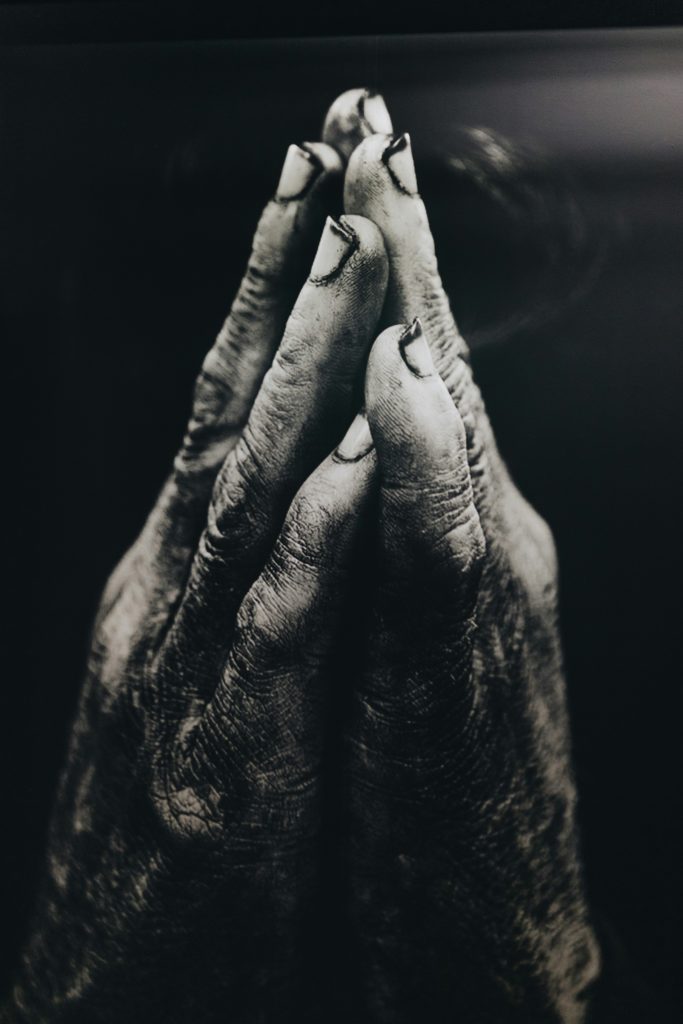
Morning prayer sparkles when the body is slow to stretch itself to honor this new day. The hand turns over the covers, summoned to wait for the revolution of the day to find a use again. Rejected, crumpled, they sag, overturned on the bed when the body stands up in the splendor of the dawning day. An eternal moment which reproduces itself as long as life flows through the veins and provides this breath whose absence rhymes with death. The body moves and embraces the darkness to slide on the mattress and let the feet touch the ground. Doesn't this ground wobble? Habit causes the room to become dark by denying it its mystery. The hand finds the pants and the sweater that will dress the clumsy body to regain movement when it had become accustomed to the stillness of the night. Suddenly, space has defined and precise volumes that are best not confronted with. Darkness watches over it so as not to lose its fortifications and hopes to regain some ground in its fight against daylight and against visual acuity which slowly adapts to the lack of light.
The corridor continues. It allows you to move towards the greatest adventure of the day. A few steps, and the corridor ends. The bathroom. A little bit of light. Very little. You have to wake up, but don't wake anyone. This meeting returns every morning around the world, intimate, without any display. The body discovers the dawning day, it leaves the night and its ocean of unconsciousness to bathe in the new source.
Finally, the prayer room. The little light that slides and reveals the triptych icon, a Virgin and Child, surrounded by the archangels Michael and Gabriel. A soft light like a setting Mediterranean sun. The kneeling descent on the prie-dieu reveals the moment of truth. Knees creak and beg for mercy. The muscular force deployed to descend onto the worn cushion placed on the wood of the prie-dieu allows the members to become familiar with this new position. Slouch while maintaining the dignity required by prayer. Let your gaze wander over the composite altar. Gaze at the woody light of the lamp on the cracked icon. See the face of Christ in this 19th century painting and his finger discreetly indicating his merciful heart. Recognizing the Trinity by Andrei Rublev. Think of the genius of Tarkovsky and all the fools-in-Christ. Let your mind wander like in an Antoine Blondin novel. Review this poorly signed contract, the chaos of work and human relations. Trying to ignore those creaky knees begging for comfort. Forget that phone call where each word sounded like a hammer blow. Let yourself be overcome by a few notes of despair about life after that horrible day the day before when all the work of several weeks was reduced to nothing. Regretting this fatigue which never ends and which longs to be swept away by a vacation which does not appear on the horizon... How so many thoughts turn and turn in the human skull which cannot stop tossing and cajoling its ideas, its concepts, this way of the world, the days past, those to come? What a marvel that these senses, all these visual or tactile or sound or taste or smell impressions come back and form the memory, where the spirit resides. What poetry!
The thoughts erase any pain from the knees or the osteoarthritis that sticks there like a shell to its rock. But, after the storm of memories and hopes, comes the time of hope and remembrance. It overflows memories and hopes by a hundred cubits, in depth, in length, in breadth, and in height. To tell the truth, it is very difficult to say how much it exceeds them, because there is nothing to compare them. The soul feels a wave of shock at the idea of this comparison. Nothing can be compared to hope and remembrance. It would be like comparing heaven to earth. That would not be appropriate. How can people who do not believe live like this, leaving out their souls? How can they cover them with so many artifices that they no longer resonate loudly enough to wake them? This is beyond comprehension.
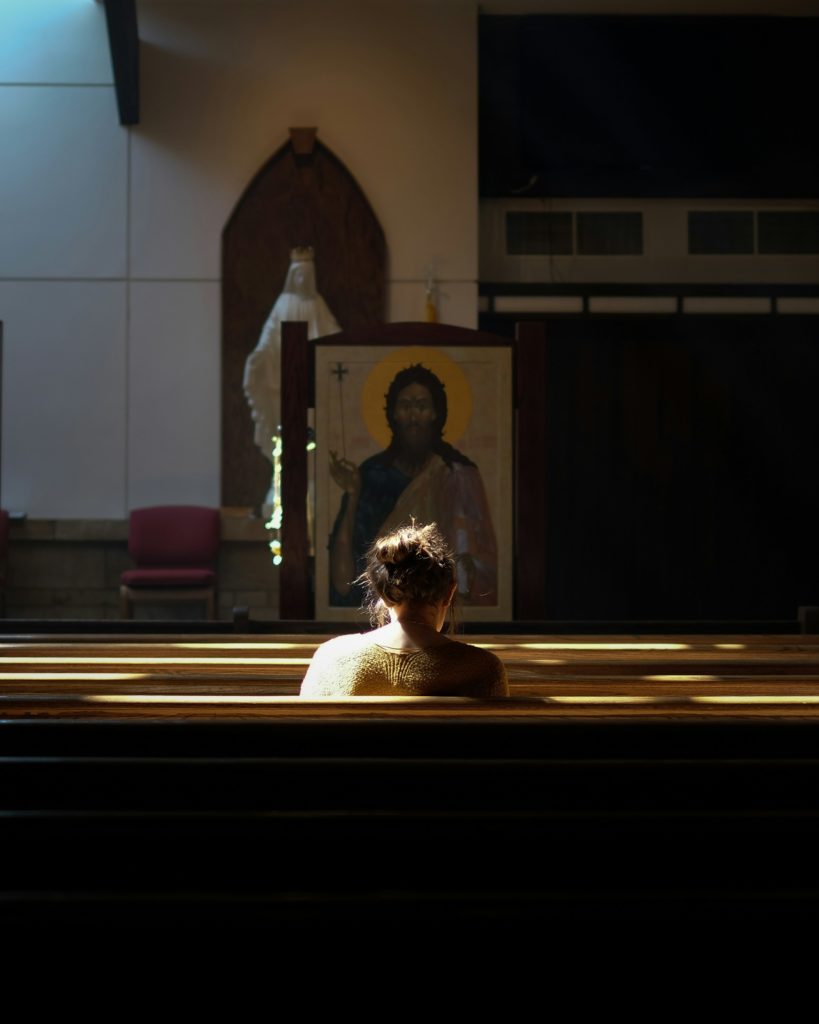
Oration sifts and sifts the first ideas. Those that resonate and descend into a bottomless cavern. The ones that continue to resonate when we no longer hear them. Ideas from beyond the grave which modify everyday life, which influence and deepen it. In what time and space is life expressed? We believe it here and it is there. We think of it as distant, absorbed in theory, and practice wins the vote by embracing thoughts and actions. We are absent to ourselves. So often. In such a meaningful way. Let's leave you alone. And, if we succeed, if we allow ourselves to be absorbed by this dawn which tramples and groans, which gives birth to day and life, love arrives without warning and envelops us and embraces us. It is the fruit of prayer. There is a provoked moment that awaits us in spite of ourselves. From this moment, no one comes back the same. A moment from which we never really return. The beauty of this hand-to-hand combat from which only love emerges victorious orders the world. We would thus like to avoid it, because there is no time, there is so much to do, the seconds ricochet off one another, the world commands us and we are victims of our crumbling structure.
Sometimes too, when the thoughts dissipate, the waiting brings us to despair. The appointment is missed. A participant is kept waiting. Yet the mind demands it. We wait and we get impatient. We would come to look at the time. We stamp our feet. Until the moment we realize that it is not the right place, that we have made a mistake, that we have gone astray. From experience, we should know that if the appointment does not take place, it is never His fault, but ours. We did not make ourselves available. The only time in our lives when we must be absent to attend.
Never has the creature revealed itself as much of a creature. All weaknesses displayed. All fragilities exposed. Nothing protects anymore, because nothing could tarnish the moment. The day that slips away and merges with the night light. The furtive shadows that slide across the face of the Virgin. The sword of Saint Michael which shines ready to serve. The zertsilo of the Archangel Gabriel where Christ is reflected, indicating the way always to come, to imitate. All these thoughts, these emotions, these feelings nourish and feed each other, mindful of their importance. No order governs them. The immensity of what they reveal and the smallness of their container frighten, but also captivate. Everything that has been said, what is going to be said, what has not been said, what could have been said, is concentrated and extracted to be reduced to nothing. The prayer has only just begun. She announces herself. The eyes close. We grope our way into ourselves. There is a sanctuary there that is worrying. Will we find what we are looking for? “Lord, in the silence of this dawning day, I come to ask you for peace, wisdom and strength…” You have to come looking for nothing to find every new thing there. The words suddenly agonize. They are no longer up to the task. The prayer begins. She extinguishes everything that is not her, the silence. The depth of silence. The abysmal intensity of silence. The silence that completes everything in its presence. The silence that reigns for its master: love. Then begins prayer, when love unfolds and fills every vein, every organ, every fiber of the being to establish the precedence of the Creator over the creature. Nothing else exists. The heart flooded with joy. Nothing else can exist, because everything is incongruous when compared to this moment, which is neither a feeling, nor an emotion, nor a thought. The universe diminishes and becomes shorter. There is a moment which does not exist, but which will recur at the next abandonment. This is a moment that gives life all its importance. There, at the heart of prayer vibrates love, a jewel that we all have, but not by escaping, by abandoning ourselves. Nothing is taken for granted, everything is offered. Little by little, by no longer having access to it, we convinced ourselves that it did not exist or that it no longer existed. He did not resist science, we found, this new religion. We even ridiculed him, because it was not enough to forget him, we had to denigrate him. However, whoever allows himself to be captured there, transforms there, metamorphoses there. To refuse is to die slowly. Die to Him. Forever.
Prayer influences all life that is offered there by restoring to it its simplicity, the marvelous.
What is the problem with the Mass of Paul VI?
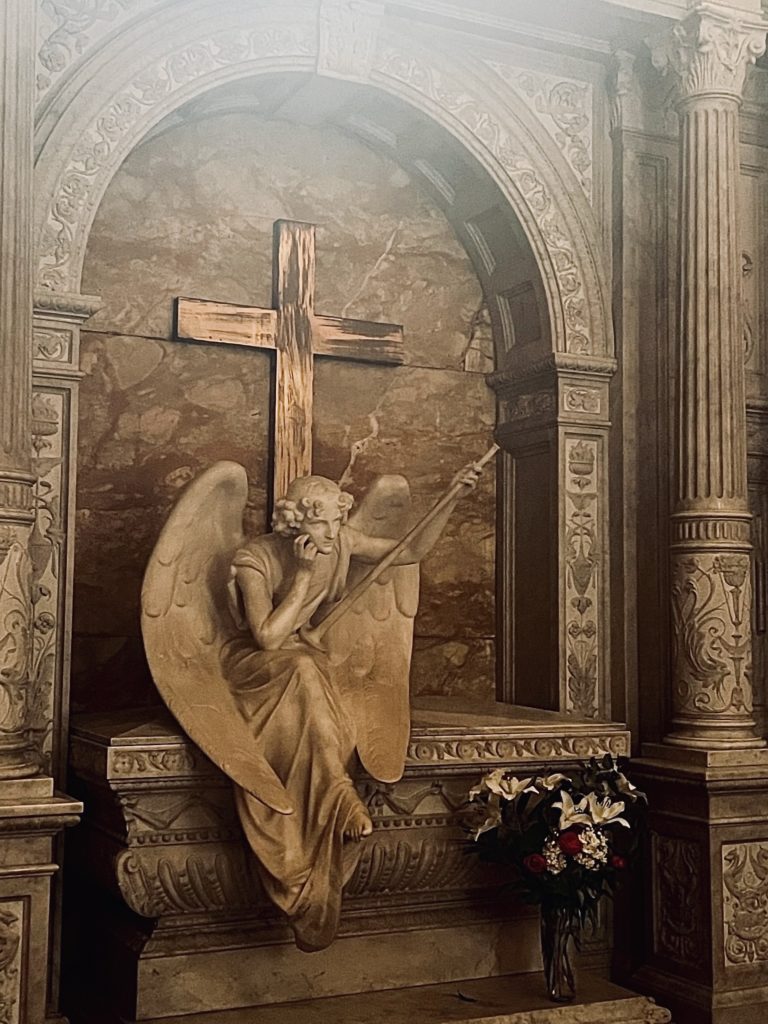 More than fifty years ago, the Catholic Church gave itself a new Mass which broke in a way never seen before with the tradition of the Church. The reformers, however, did not expect the traditional Mass to continue for them. They were even convinced of the contrary. abolition of the traditional Roman mass . commit themselves, as prayers, as seminarians, to celebrating and bringing to life this form of the Roman rite. The latter are often accused of being troublemakers, nostalgics, identity seekers, and above all, crime of lèse-majesté, of being against the Second Vatican Council, which one no longer separates from one's own spirit; this spirit of the council which we feast on without ever really qualifying it, as for almost all important things. In the Church as elsewhere, progressives act by essentializing their opponents in order to discredit them. The liturgy is the summit and the source of the life of the Church, as the last council reminds us, and the liturgy is tradition. To resolve the crisis of the liturgy that she carries within her, the Church will have to reweave the threads of damaged and wounded tradition, even and above all, if the time urges her not to do so.
More than fifty years ago, the Catholic Church gave itself a new Mass which broke in a way never seen before with the tradition of the Church. The reformers, however, did not expect the traditional Mass to continue for them. They were even convinced of the contrary. abolition of the traditional Roman mass . commit themselves, as prayers, as seminarians, to celebrating and bringing to life this form of the Roman rite. The latter are often accused of being troublemakers, nostalgics, identity seekers, and above all, crime of lèse-majesté, of being against the Second Vatican Council, which one no longer separates from one's own spirit; this spirit of the council which we feast on without ever really qualifying it, as for almost all important things. In the Church as elsewhere, progressives act by essentializing their opponents in order to discredit them. The liturgy is the summit and the source of the life of the Church, as the last council reminds us, and the liturgy is tradition. To resolve the crisis of the liturgy that she carries within her, the Church will have to reweave the threads of damaged and wounded tradition, even and above all, if the time urges her not to do so.
Which Vatican II?
"The new Ordo Missae, if we consider the new elements, susceptible to very different appreciations, which seem implied or implied therein, departs in an impressive way, as a whole as in detail, from the theology of the Holy Mass, as it was formulated at the XXII session of the Council of Trent, which, by definitively fixing the "canons" of the rite, raised an impassable barrier against any heresy which could undermine the integrity of the Mystery” 2 Cardinal Ottaviani, prefect emeritus of the Congregation for the Doctrine of the Faith addressed Paul VI on September 3, 1969, we were a few weeks away from the entry into force of the new mass. In a way, this concluded the Second Vatican Council which had however closed its doors for four years! Let's dwell a little on the figure of Cardinal Alfredo Ottaviani: the son of a baker, from the poor neighborhoods of Rome, he turned out to be a very good student at the Roman pontifical seminary, and obtained three doctorates, in theology, philosophy and canon law. . Secretary of the Holy Office, then proprefect of the Congregation for the Doctrine of the Faith, he worked the four years preceding the council to prepare the themes to be treated and pronounced the habemus papam for the election of John XXIII. This month of October 1962 will see the masks fall and positions, progressive or modernist, appear. John XXIII, in his opening speech of the Council, will display a certain contempt for the curial team of Pius XII by declaring: "The Spouse of Christ prefers to resort to the remedy of mercy, rather than brandishing the weapons of severity . She believes that, rather than condemning, she responds better to the needs of our time, by emphasizing the riches of her doctrine. » 3 There is in this sentence a dichotomy which inaugurates and prefigures the whole Second Vatican Council: can there be mercy if there is no condemnation of an act? Why should there be a remedy if there is no wound before? Didn't we see the will to put sin under the rug like a troublesome dust? The tone used where leniency asserts itself as the supreme authority will become the leitmotif of the Second Vatican Council. Therefore a sling is organized. The texts prepared by the curia are rejected. Notably De fontibus revelationis , on the sources of revelation, and De Ecclesia . An absolute majority was needed to ratify this rejection, John XXIII gave his agreement and was satisfied with the relative majority. “Thus was carried out a veritable coup d'etat, by which all the liberal tendencies, in the process of organizing themselves into a 'conciliar majority', snatched doctrinal power from the Curia inherited from Pius XII. » 4 . From then on, and since the working texts had been trampled on and discarded, work began on the liturgy. We thought the unifying subject. The progressives had an agenda as usual, which the conservatives almost never have. Cardinal Ottaviani, on October 30, 1962, took the floor, he was not yet blind and was going to show clairvoyance, he asked that the rite of the Mass not be treated "like a piece of cloth that is put back fashionable according to the fancy of each generation”. It seemed to the audience that it was too long in its development. He was interrupted without regard to his rank. His microphone was cut to the applause of a large number of Fathers. The Second Vatican Council could begin.
Read more about “What is the problem with the Mass of Paul VI?”
The Pump by Clive Staples Lewis
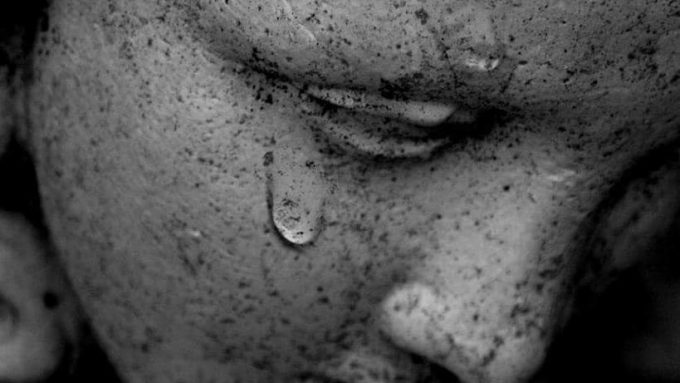
"In the first place, you must get rid of that nauseating idea, the fruit of an inferiority complex manifesto and a worldly mind, that pomp, in the right circumstances, has anything in common with vanity or sufficiency. A celebrant who solemnly approaches the altar to celebrate, a princess led by her king in a noble and delicate minuet, a senior officer reviewing the honored troops during a parade, a butler in livery bringing food lavish at a Christmas banquet — all wear unusual attire and move with calculated and impeccable dignity. This does not mean that their gestures are in vain, rather docile; their gestures obey an imperative that presides over every solemnity. The modern habit of practicing ceremonies without any etiquette is no proof of humility; rather, it proves the powerless celebrant's inability to forget himself in the service, and his readiness to rush and spoil the pleasure proper to the ritual of placing beauty at the center of the world and making it accessible to him. »
Free translation by the blog author.
Show “But times always come back…” – 2nd Foreign Infantry Regiment (1991)
Show “But times always come back…” — 2nd Foreign Infantry Regiment (1991) by Emmanuel Di Rossetti on Vimeo .
On August 31, 1991, the 2nd Foreign Infantry Regiment celebrated its 150th anniversary during an exceptional cinéscénie, the battle of El Moungar and its return from Operation Daguet, the first Gulf War. 30,000 spectators from Nîmes will attend this event which began during the day with the legionnaires dressed in authentic costumes placed in the conditions and sets of different eras, and which will continue late into the night with the show itself performed by François Gamard, Jérôme le Paulmier and Richard Bohringer 1 in front of the Costières stadium (180 meters from the stage!).
Continue reading “Show “But times always come back…” – 2nd Foreign Infantry Regiment (1991)”
Exile, migrants and the Holy Father
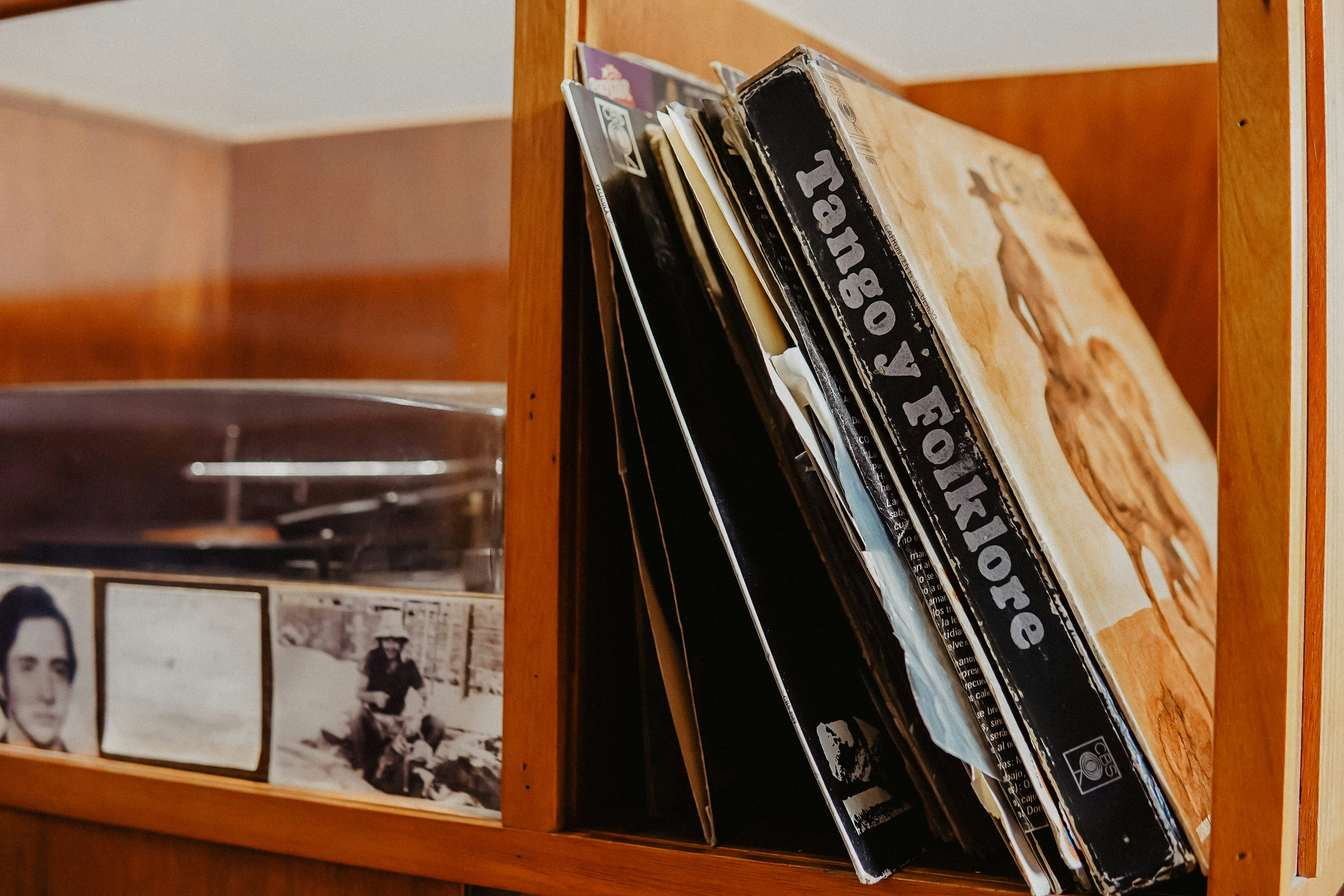
Just listen to the captivating music of some tangos, Carlos Gardel, of course, Astor Piazzolla too, and others, who thus sang of exile, the distant, the inaccessible, to chase away their waves from the soul , their melancholy and live for the duration of a song in the combined happiness of their memories and their hopes, to feel the distress of someone who believes they have lost their country forever.
This conjugation is called hope. Where the soul vibrates to feel alive. Pope Francis, as a good Argentinian, feels in his veins the migration of his ancestors to this El Dorado, Argentina. That this modifies his vision of the migrant, whose overly generic name indicates from the start the difficulty of talking about him, is undeniable and proves to be a key to understanding his erratic speeches on the subject.
Exile forces the soul to reveal itself, and to veil. To reveal certain things in oneself that one did not know, that one ignored, that one kept hidden for fear of what they might conceal. Faced with exile, they emerge from oneself as if from nothing, become what they have always been, and dominate us. What merit forged in us by exile, often in spite of ourselves, because we refused to do so! Exile breaks down a barrier often erected in a hurry and without real thought. Man is a reaction animal. When he evolves in his usual element, he most often reacts to his own demons, resentments and mood swings. When he emerges from his cocoon, he reacts to survive by relying on what he believes in, often the fruit of his culture, but his nature is not foreign to it either. This rootedness protects him most of the time from self-disappointment, but not from melancholy, homesickness.
The expression, travel forms youth , comes from this experience. Exile forces the heart, mind and body to communicate differently with the soul which therefore reveals itself, but which also requires us to veil parts of our personality that it took for granted. Sometimes, these are revealed sections which veil other sections. What we believe turns out to be overestimated.
In exile, even certainties appear new.
Why this hatred of authority?

Authority resembles those secret agents dear to Graham Greene who conceal their identity so as not to lose it further during a bad encounter. She still has a few admirers who love her and deploy treasures of ingenuity to define her, redefine her, so that she is understood in her time. To do this, they bring her closer to tradition, to honor, to hierarchy, to natural law... they constantly give her a cane, crutches, a tripod, so that she can still get out of his hiding place and get some fresh air. The words to which they attach authority resemble bandages, cautery, which, in the end, hide it a little more. The disenchantment has been pronounced for a long time and is increasing. Nothing can save authority, everything that it inspires brings to mind old things that we know how to do without. It is of no use. It is of no use.
Authority, in its Latin sense, comes from auctor which means “one who increases”, and from auctoritas , which has “power to impose obedience”. Authority is equated with power, which we forget when separating power and authority. On the other hand, it is a power without power, it does not constrain. Its field of action is born from ethics, knowledge, belief... Because it requires obedience. This is where we begin to stumble over its meaning, because the times do not like obedience. And, as the era no longer appreciates belief, it denigrates authority. It devalues it, it identifies it with cowardly and blind power. She gives him a nickname that has become an implication: authoritarianism . As if to reveal what she hides under her mask of leniency: a brutal, violent and unstable character. It must be unmasked. She must be slandered. Above all, we must no longer understand anything, and what is not understanding anything if not a new form of belief? Authority imposes limits that no one wants anymore, which oblige and prevent us from being what we want. The era believes that it is by being what we desire that we will be what we deserve. Individualism reigns supreme, and unchallenged. No one knows better than you what is good for you. Let’s take it for granted! As it was necessary to ignore limits and hierarchy, the era threw authority aside after having put it on the picket line. Authority catalyzed modernity. She had to be subdued.
Read more about “Why this hatred of authority?”Letter to Pope Francis regarding the Mass
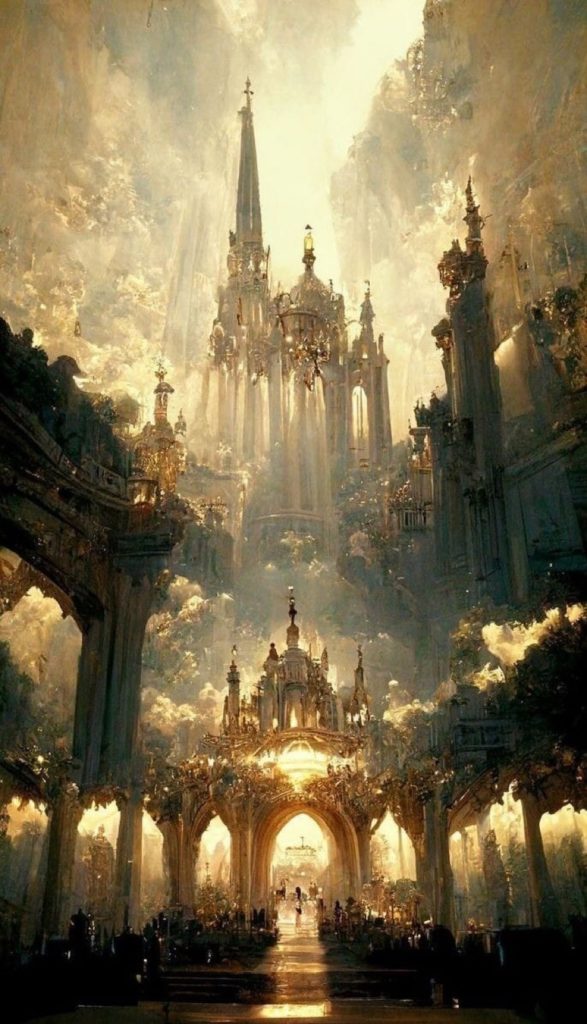
Preamble
This letter to Pope Francis was first written for La Voie Romaine 1 in order to bear witness to the beauty and effectiveness of the traditional Roman rite and to bear witness to the shock caused by the motu proprio, Traditionis custodes , published on 16 July 2021 by Pope Francis.
Holy Father,
I was waking up from a terrible nightmare: I dreamed that you were limiting access to the traditional liturgy, so I thought it was important to reveal to you how much the Mass of Saint Pius V has marked my existence without my being the least prepared for it. Do you know that it is difficult for me to write Saint-Père, because I had no father. I have one, like everyone else, but I didn't get it when I should have. So he left me before I was born. I found it later, but you understand that I didn't get it at the right time. I didn't have the good times that a child knows with his father. I didn't know him when the need arose, and the need arose at all times since absence created it I didn't have a father to guide me, like a tutor, to share my likes and my dislikes, to marry my views or influence them.
Continue reading “Letter to Pope Francis regarding the Mass”
Benedict XVI in Paradise!
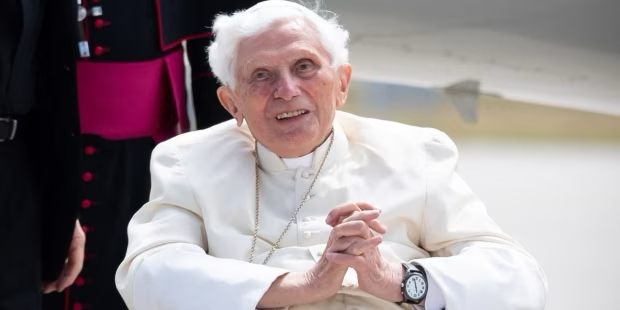
"Is it morning or evening?"
My breath would catch, then it would resume. As if giving a sign of a defect. He let me go. The pneuma was leaving me. I sighed that I was ready. My God I love! But, the breath came back, the air of nothing, as if he had gone out to run an errand. The memoir is out.
I knew G. was coming. I hoped that my last strength would last until his return. I was waiting for him to go into agony. I felt no tension. I think everything went quickly afterwards. Time is rushing. I heard different sounds that don't seem to all belong to the same universe. It gave me a vague torpor like you feel when you're comatose. Sounds coming from several dimensions. G arrived with two sisters, my little memories who had taken such good care of me all these years.
I heard perfectly what was being said. The soul has ears, doesn't it? I gauged which witnesses would be present during my judgment. I questioned my angel, but he did not answer. Was he already called to pave my way? I could hear G. speaking to me in his melodious voice to reassure me, but I couldn't answer him. This is certainly what decided him to bless me and offer me the last sacrament. My voice no longer came out. I understood that this time, she would never go out again. My voice on Earth died out at that moment. It started like this. She had betrayed me before, however this time, I understood that it was final. I no longer exerted any force to make her change her mind. I felt that parts of me were becoming independent of me. I wanted to repeat: my God whom I love! I say it without a voice. From the look, G. understood me. The soul has ears. G. knelt down the moment I felt like I was slipping. I remembered myself, as a child, slipping on a pool of freezing water and finding myself on my buttocks, spinning on my own. My eyes closed on this delicious memory of mom and dad laughing at the bursts of my fall, my very dear brother was also laughing at their side, then he helped me to get up. My dear parents who had given me life in a difficult time and who, at the cost of great renunciations, had prepared a marvelous home for me with their love. Everything happened very quickly. I left my body. I understood that the soul was the real I. I still felt my limbs. It was strange. I felt someone coming. Everything was going very fast. A person was approaching. He was familiar to me. How did I know? It was like a new sense that preceded all my lost senses. I knew who was coming even though I didn't see anyone, besides my vision was blurring, it was getting confused, but I knew, I felt that someone was standing in front of me.
The breath of the Spirit in Warrington! A church is reborn!
The Fraternity at Warrington , by Abbé Armand de Malleray, Rector of St. Mary's Church in Warrington
 Few traditional mass centers have started without a core of parishioners willing to pray in the traditional form. Yet this is what happened in Sainte Marie de Warrington, a medium-sized town located between Liverpool and Manchester, in the northwest of England. The Benedictine monks of Ampleforth Abbey had built this large and beautiful neo-Gothic church in 1870. But for lack of vocations they had to entrust Saint Mary to the diocese which, for the same reason, soon had only one alternative. : closure or Fraternité Saint-Pierre. One could thus summarize the choice offered by the Archbishop of Liverpool to his flock: Eleison or Morrison (Morrison is the English equivalent of Leclerc supermarkets). Rather than let their beautiful church become a shopping center (or an indoor climbing center as happened for another church in the city), the faithful decided to try the Mass in Latin. In 2015, the Priestly Fraternity of Saint Peter was therefore invited to take over the management of this church.
Few traditional mass centers have started without a core of parishioners willing to pray in the traditional form. Yet this is what happened in Sainte Marie de Warrington, a medium-sized town located between Liverpool and Manchester, in the northwest of England. The Benedictine monks of Ampleforth Abbey had built this large and beautiful neo-Gothic church in 1870. But for lack of vocations they had to entrust Saint Mary to the diocese which, for the same reason, soon had only one alternative. : closure or Fraternité Saint-Pierre. One could thus summarize the choice offered by the Archbishop of Liverpool to his flock: Eleison or Morrison (Morrison is the English equivalent of Leclerc supermarkets). Rather than let their beautiful church become a shopping center (or an indoor climbing center as happened for another church in the city), the faithful decided to try the Mass in Latin. In 2015, the Priestly Fraternity of Saint Peter was therefore invited to take over the management of this church.
In this majestic architectural setting, we were able to unfold the traditional liturgy and ministry without the slightest hindrance. As all the buildings belong to us, and with the approval of the local archbishop, the entire ministry is carried out according to the liturgical and disciplinary traditions described in the Constitutions of the FSSP. Before our arrival, and in the first months, several meetings allowed parishioners to ask questions to which our priests answered, explaining the theological and spiritual reasons for Latin, the posture of the priest turned towards God, the absence of lay ministers of Holy Communion etc. About three quarters of the community remained. Since then, many other devotees have arrived. For many, the first Holy Week in 2016 was a revelation. Other parishioners said they discovered the significance of the sacred architecture, converging on the tabernacle, when the vast platform with table installed in the middle of the nave in the 1970s was removed and the high altar rebuilt. After about 50 years of interruption, we have restored the Corpus Christi procession of Saint Mary to a nearby church. All Catholics in the city and elsewhere are invited. We bought a large adjacent building to make a small school and a large parish hall. About 40 people attend Holy Mass each weekday and 240 on Sundays. The priests absolve about 85 penitents a week and give plenty of time for spiritual direction.
As all the buildings belong to us, and with the approval of the local archbishop, the entire ministry is carried out according to the liturgical and disciplinary traditions described in the Constitutions of the FSSP. Before our arrival, and in the first months, several meetings allowed parishioners to ask questions to which our priests answered, explaining the theological and spiritual reasons for Latin, the posture of the priest turned towards God, the absence of lay ministers of Holy Communion etc. About three quarters of the community remained. Since then, many other devotees have arrived. For many, the first Holy Week in 2016 was a revelation. Other parishioners said they discovered the significance of the sacred architecture, converging on the tabernacle, when the vast platform with table installed in the middle of the nave in the 1970s was removed and the high altar rebuilt. After about 50 years of interruption, we have restored the Corpus Christi procession of Saint Mary to a nearby church. All Catholics in the city and elsewhere are invited. We bought a large adjacent building to make a small school and a large parish hall. About 40 people attend Holy Mass each weekday and 240 on Sundays. The priests absolve about 85 penitents a week and give plenty of time for spiritual direction.
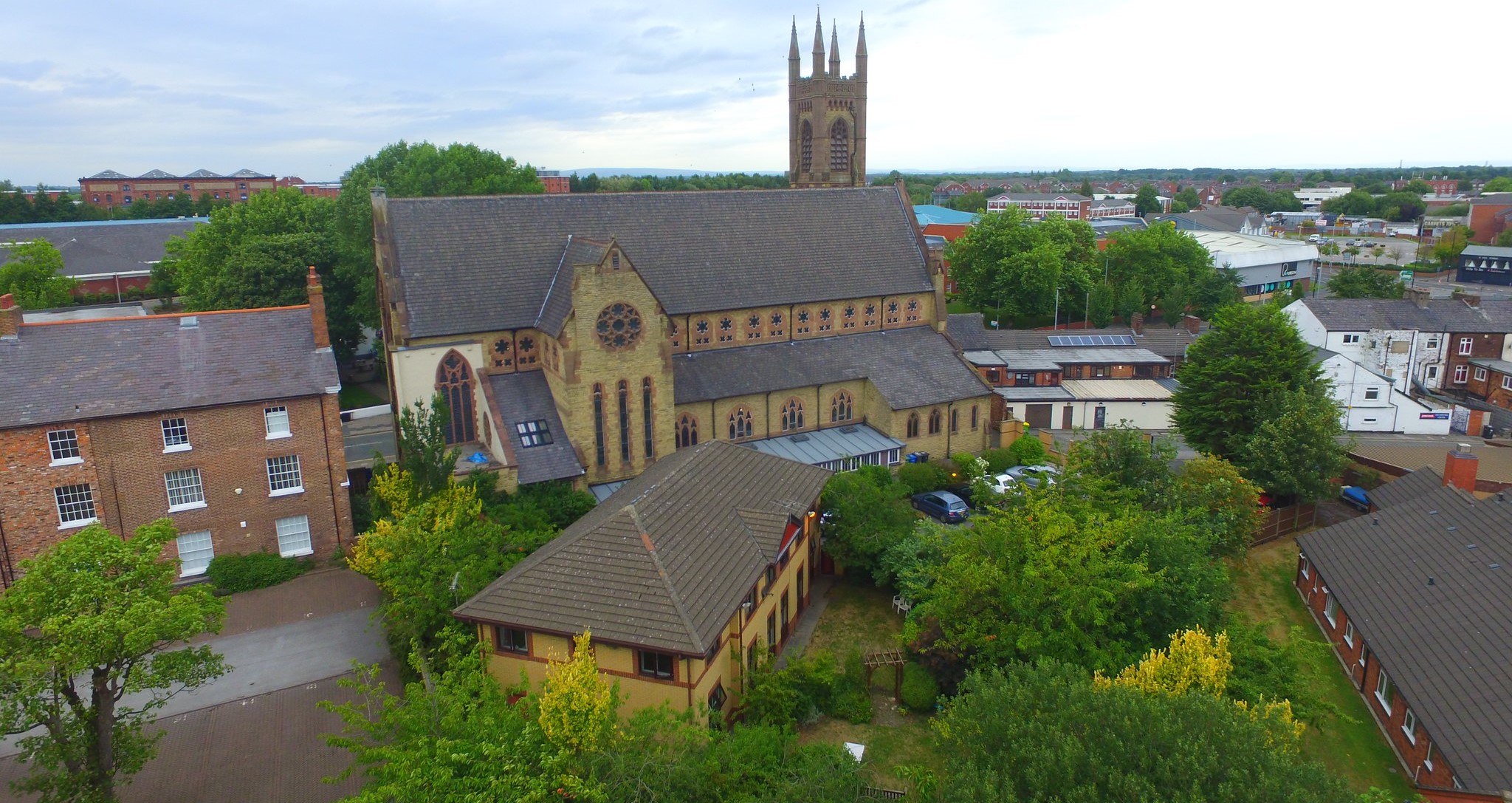
The Archbishop of Liverpool has given us unwavering support.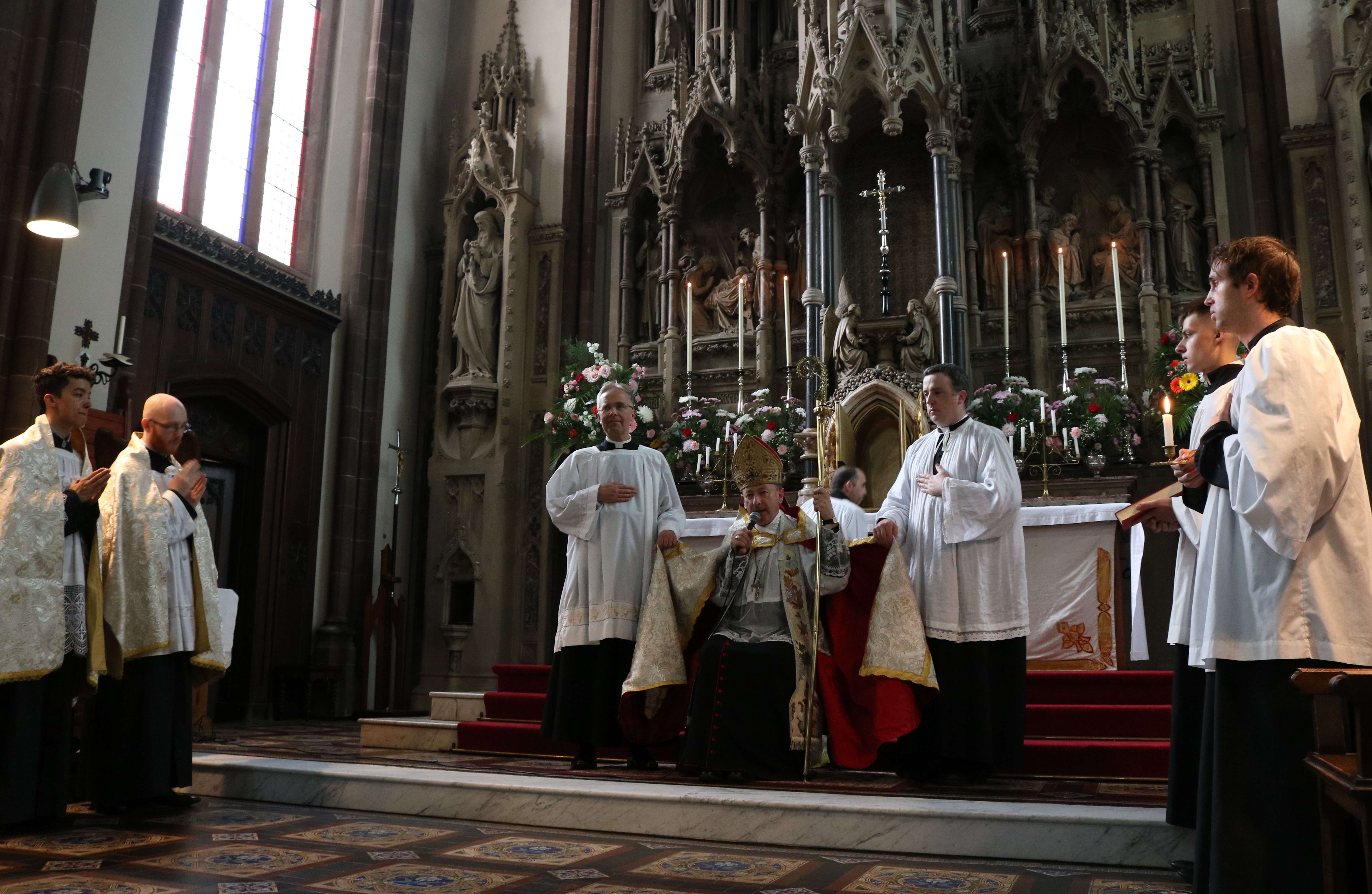 Twice he ordained our priests in our church. He was the first English bishop to ordain in the traditional form since 1970. Each year he confers the Sacrament of Confirmation. Without however sharing the point of view of our Fraternity on a certain number of pastoral and dogmatic questions, our Archbishop is happy to see a community of faithful growing in a serene way. While burying far more priests than he ordains, and closing churches instead of building them, the pastor of this archdiocese generously supports our little community because of the manifest fruits God is producing in it. Every year converts join the Church, young people marry and others embrace the consecrated life. The faithful often pray for vocations, either during votive Masses for Vocations, or according to the Prayer of the Confraternity of Saint Peter. Their clergy remind them that their prayers and their sacrifices are essential to obtain from God the priests of tomorrow, making it possible to offer other parishes the opportunity for a saving rebound like that of Saint Mary of Warrington. O God, give us many holy priests!
Twice he ordained our priests in our church. He was the first English bishop to ordain in the traditional form since 1970. Each year he confers the Sacrament of Confirmation. Without however sharing the point of view of our Fraternity on a certain number of pastoral and dogmatic questions, our Archbishop is happy to see a community of faithful growing in a serene way. While burying far more priests than he ordains, and closing churches instead of building them, the pastor of this archdiocese generously supports our little community because of the manifest fruits God is producing in it. Every year converts join the Church, young people marry and others embrace the consecrated life. The faithful often pray for vocations, either during votive Masses for Vocations, or according to the Prayer of the Confraternity of Saint Peter. Their clergy remind them that their prayers and their sacrifices are essential to obtain from God the priests of tomorrow, making it possible to offer other parishes the opportunity for a saving rebound like that of Saint Mary of Warrington. O God, give us many holy priests!
Argentina wins against globalism

Never has a World Cup started so badly. Offered in Qatar, with Zinédine Zidane as ambassador, in a suspicious climate of corruption. Everything has been said about this country, as big as half of Brittany, managing to change the season of the World Cup for the first time since its existence, air-conditioning its stadiums, and killing workers on the job so that all stadiums are ready on time. About the change of date: playing in the summer after the club season, allowed to prepare the players and to form a group, which is always difficult with national teams, the chemistry has to happen in a short time and the results must be immediate; playing in winter guarantees having players who have not played an entire season, who are therefore less mentally and physically worn out and who benefit from their pre-season preparation… Regarding the workforce, have we ever heard of the low-cost labor that has been used systematically for decades at every High Mass organization around the world? Similarly, the argument of gossiping about the health of players at risk in this climate was laughable. Who cared about the health of players at the 1986 World Cup in Mexico, for example, where impossible heat and humidity reigned, this organization did not move the world at the time. The choice of Qatar should have been denounced as soon as the name of this country rustled, afterwards, it was too late and decency should have prevailed. In terms of play, this World Cup marked the end of an extraordinary generation: Cristiano Ronaldo and Lionel Messi played their last World Cup. This World Cup was announced as the advent of Mbappé. The young French prodigy was about to bury the old glories without firing a shot.
Father Garrigou-Lagrange about the enemies of the Church!
The Church is uncompromising in principle, because she believes, and tolerant in practice, because she loves. The enemies of the Church are on the contrary tolerant in principle, because they do not believe, but intransigent in practice, because they do not love. The Church absolves sinners, the enemies of the Church absolve sins.
Paradise Lost by Sebastien de Courtois
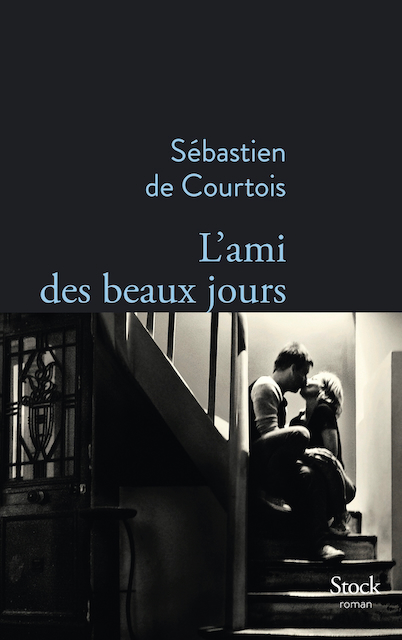 There is a nostalgia for a lost paradise. We all feel it, more or less; it connects us to original sin and to the fall. This disease torments pure souls. She heels and waves. Illness of youth if ever there was one, romantic madness, this nostalgia is at the heart of Sébastien de Courtois' novel, L'ami des beaux jours .
There is a nostalgia for a lost paradise. We all feel it, more or less; it connects us to original sin and to the fall. This disease torments pure souls. She heels and waves. Illness of youth if ever there was one, romantic madness, this nostalgia is at the heart of Sébastien de Courtois' novel, L'ami des beaux jours .